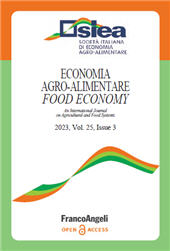Endogenous rural development planning : case: Vereda El Vergel in Palmor - Ciènaga Magdalena, Colombia
35-58 p.
In Colombia, the agricultural sector is a strategic point to generate development in the territories; but few governmental actions are implemented to achieve it, therefore, the objective of this research is to explain how the rural development of Vereda Vergel in Palmor-Ciènaga Magdalena, Colombia, has taken place based on the productive activities developed by its inhabitants under the criterion of governance of the community itself focused on its welfare. Methodologically, it is classified as a descriptive-explanatory field study with a qualitative approach, following the theoretical postulates of Alburquerque (2007) and Martìnez de Anguita (2006). As a data collection technique, an interview script was applied to a focus group formed by farmers of the village.
The main finding shows that there is no planning in the territory to promote the rural development generated within the community; however, the community diversifies its productive activity in fruit and bread crops such as lemon, mango, strawberry, coffee, yucca, yams; on the other hand, animal husbandry: chickens, ducks, pigs and cows, as well as beekeeping activities. In this sense, all the primary production and handcrafted processed products [Publisher's Text].
Ist Teil von
Economia agro-alimentare : XXV, 3, 2023-
Artikel aus derselben Ausgabe (einzeln erhältlich)
-
Informationen
ISSN: 1972-4802
KEYWORDS
- Endogenos Rural Development, Development Planning, Farmers, Productive Activity, Commercialization


